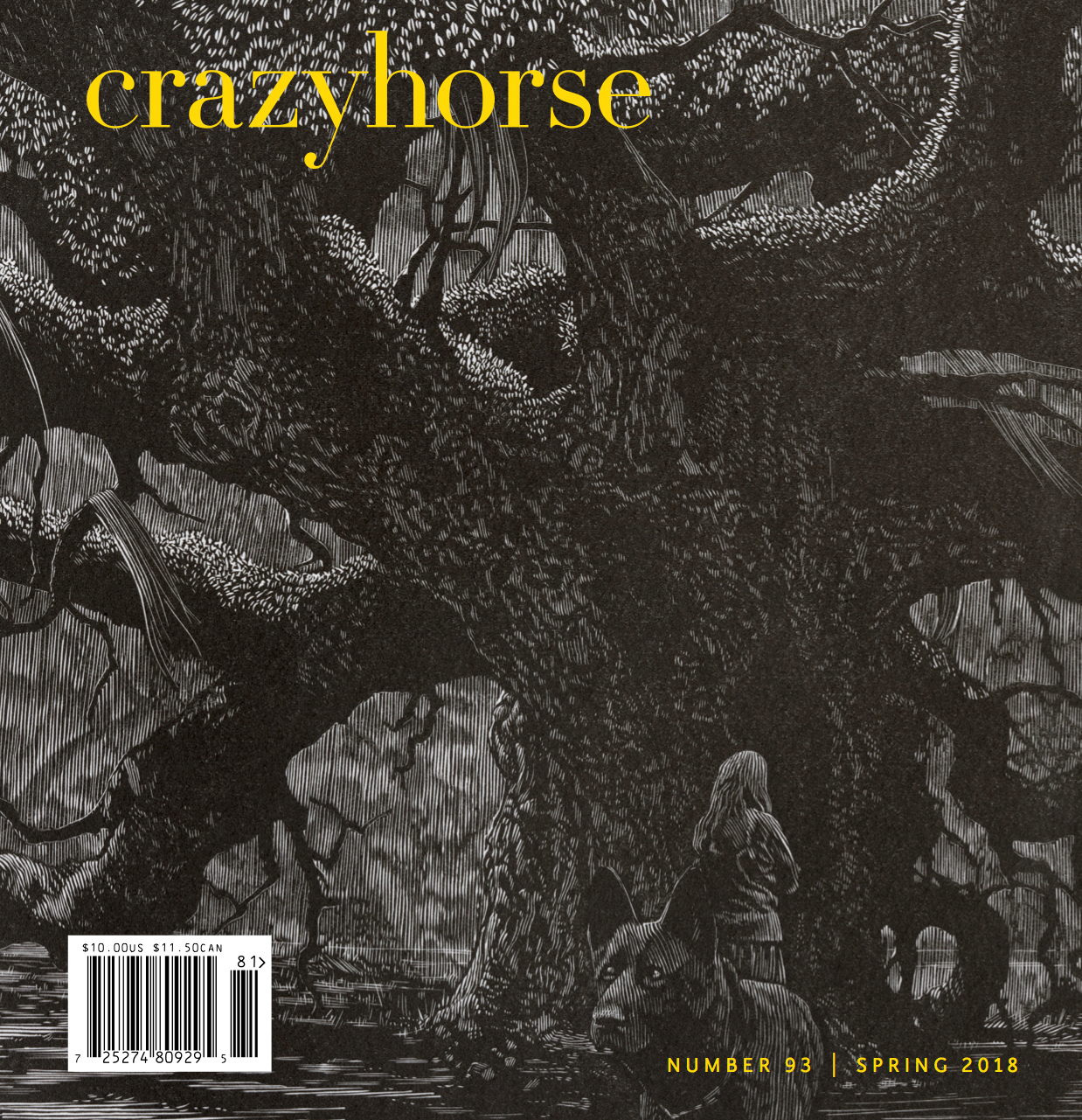
Dina Guidubaldi’s debut story collection, How Gone We Got, features robots and sea creatures and characters that seem intimately familiar.
Dina Guidubaldi’s first book, the story collection How Gone We Got, has drawn comparisons to Gabriel Garcia Marquez. Her work has appeared in Prairie Schooner, Ninth Letter, the Santa Monica Review, Cup of Fiction, SPIN, the Austin American-Statesman, and Other Voices; she has been an editor for Callaloo and American Short Fiction. A graduate of Texas State’s MFA program, she currently lives in Austin.
To read an exercise on making high-concept stories unpredictable and Guidubaldi’s story “What I Wouldn’t Do,” click here. In this interview, Guidubaldi discusses how to create realistic characters and following your instinct as a writer.
Michael Noll
How did “What I Wouldn’t Do” begin its life? Did you sit down and think, I’m going to write about a guy who builds an actual city for the woman he loves and see how far I can take the idea? Or, were you writing about a relationship when the idea of building a city occurred to you?
Dina Guidubaldi
This was one of those actually “fun” stories to write. I think it started with the idea of the narrator as this kind of obsessive, impractical nut. It also started with me thinking about the concept of “true” love, how there’s something selfish about it. My dad bought me a book when I was little, called The Reward Worth Having, about these brothers (?) who travel a long distance to vie for the hand of this ailing princess. The one who woos her in the end is of course the underdog, who just brings her a bird and a song and no money or promises. The idea was supposed to be “Aw, be yourself and people will see your value,” but I guess what I took out of it was “He doesn’t even know that princess! She could be awful! Why bother? He just wants to be the One who gets her, the One who gets written about.” And so that fuzzy memory sitting somewhere in my head got the ball rolling.
Michael Noll
I love how the story takes phrases that would normally seem sweet (“you were my hours and my half-pasts”) and makes them oppressive and creepy. This is part of what made the story seem strangely realistic to me. It’s a kind of fable or allegory (or something), and the risk with such stories is that they’re too clever for their own good. But this story seems like a real portrait of a relationship that many people have had; in fact, the fantastic-ish elements seem to create the opportunity for the moments that seem most authentic. How did you achieve this balance? In other words, how did you keep the metaphor trained on real emotion?
Dina Guidubaldi
Hm. Right, I think if it does achieve that realness, it’s because this is an honest problem people have—obsession is just selfishness. This guy’s trying his best to make things work, but for what? I also think the female character helps balance things out. She figures things out way before he does, that it’s not about her at all. And again, that fable bit—because it is loosely based on the premise of the knight aiming for the princess, you can get all crazy with the details. Also, he’s rich, and rich people come up with fantastic ways to spend their money, in real life. Or so I like to think.
Michael Noll
I laughed out loud at this line:
It’s not like you’re a prisoner here, I said. You’re free to walk out of your turret room and down the spiral staircase and through the antechamber and into the foyer and out the front door and past the rosemary and lavender bushes and into the hedge maze and down the cobblestoned circular streets and out into the world.
It makes me curious about the story’s tone. It’s told in first person, but a line like that seems to reveal a certain amount of self-awareness in the narrator. Was that tone/awareness easy to find, or did you have to write your way into it?
Dina Guidubaldi
Not to sound like a writer jerk, but that’s just the way the character talks, to me. He’s so blustering and headstrong that he almost grasps it—in fact, he does grasp it, I’d say—but he’s heedless, he doesn’t care. He has this little war brewing inside him—Should I keep doing this? Heck, I’ll keep doing it!—and I love that he just quashes any self-doubt before it can get big enough to rise up before him, before his many, many failures catch up to him.
Michael Noll
How did you approach the story’s ending? I can imagine other tempting ways to end it: when the woman leaves or with the narrator’s realization that “I’d been building us your city for me.” But you keep going and end with the great, creepy moment with the microscope. How did you know you’d found the right image or line to end on?
Dina Guidubaldi
I think I kinda like this guy, and I didn’t want him to be sad. I didn’t want him to realize anything much, or to change for very long. I wanted him to keep living blindly and blithely in his world, and the idea of a child—or, for him, a brand new generation of something to love and obsess over—seemed a good way of extending his quest. I also like that he doesn’t care if it’s his child—any one will do. Which kinda circles around the true love idea: is he truly loving or is he truly selfish? And I guess I (inadvertently) revisit this whole idea in a later story in the collection—the “Press Repeat” clone one.
June 2015





Leave a comment